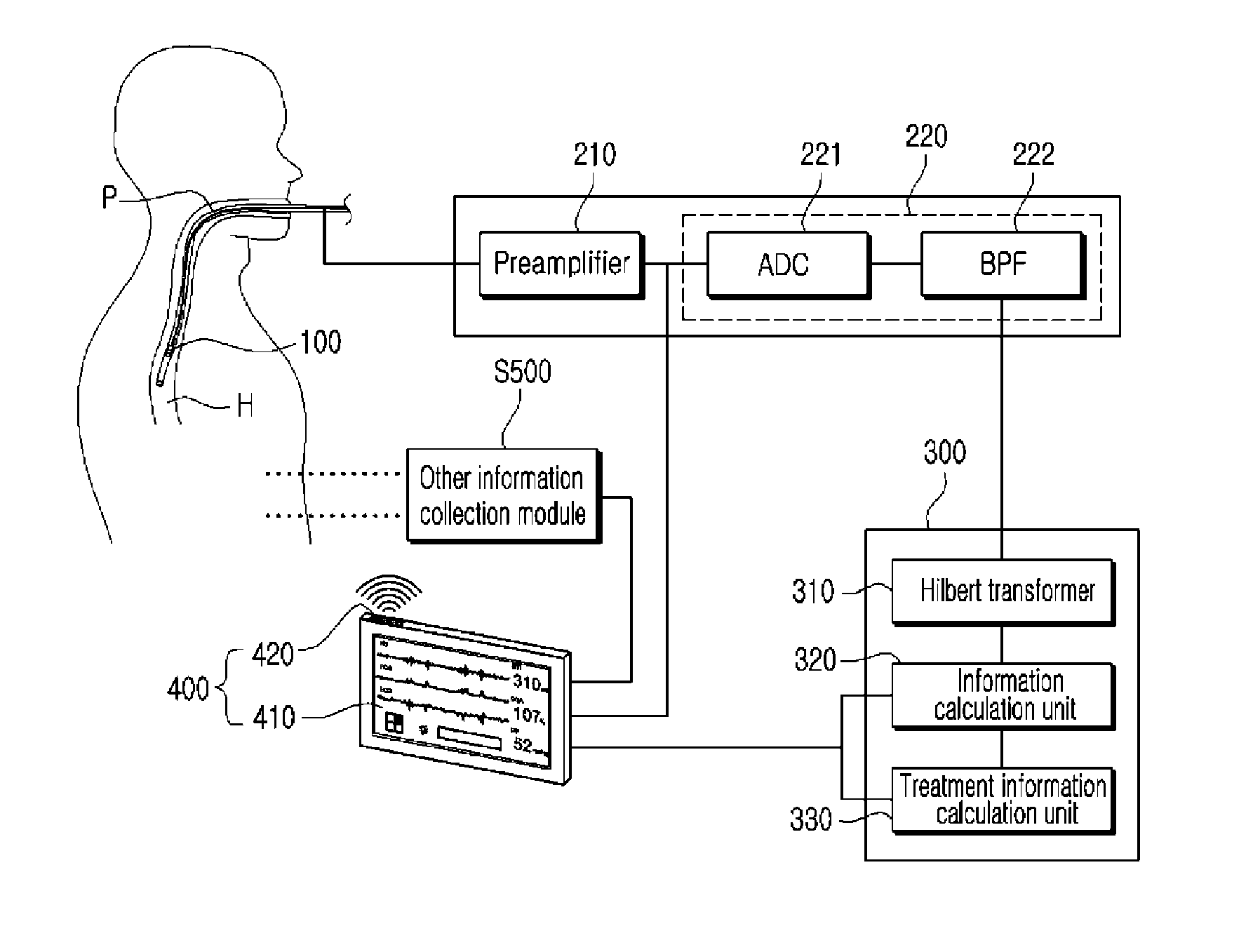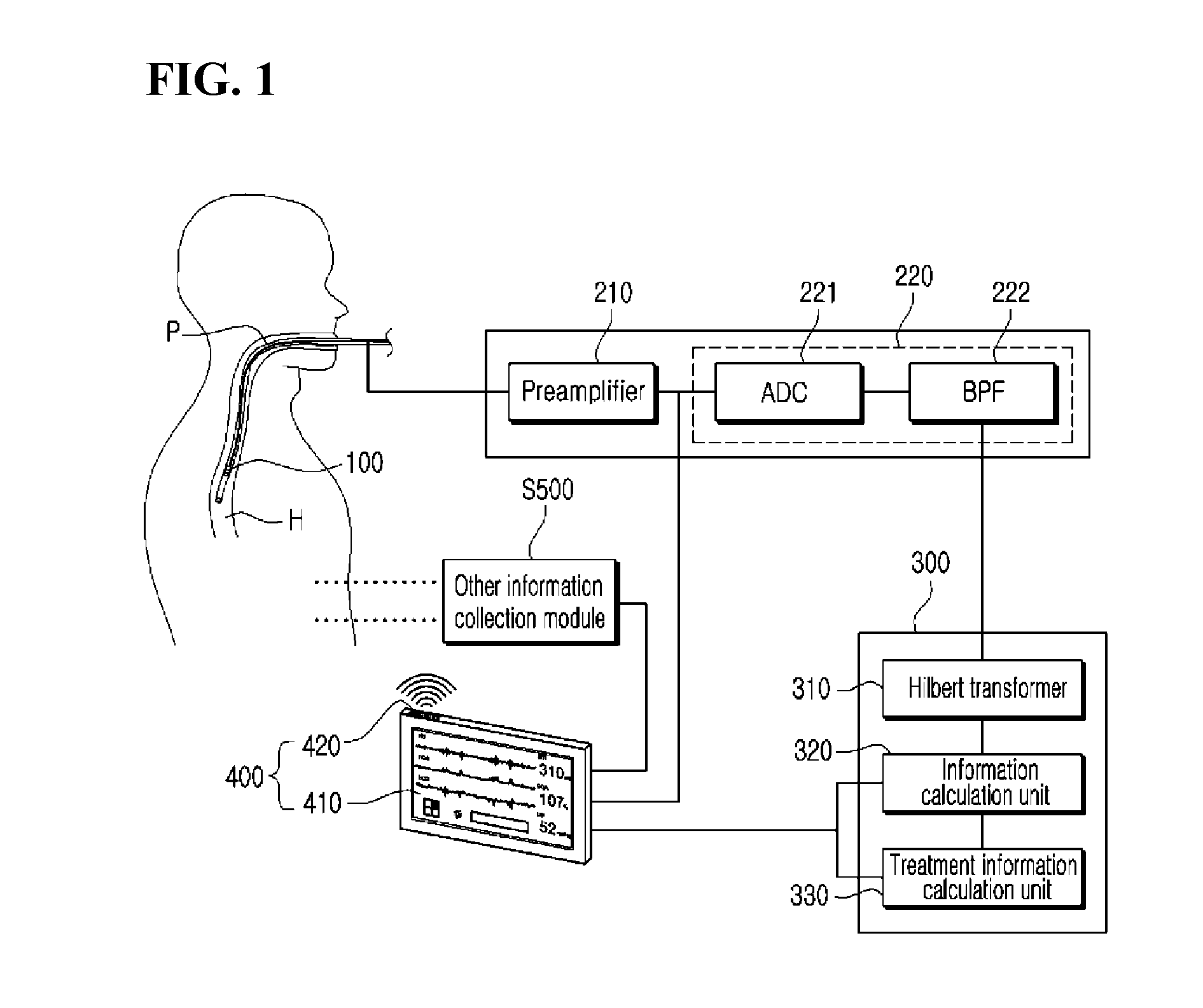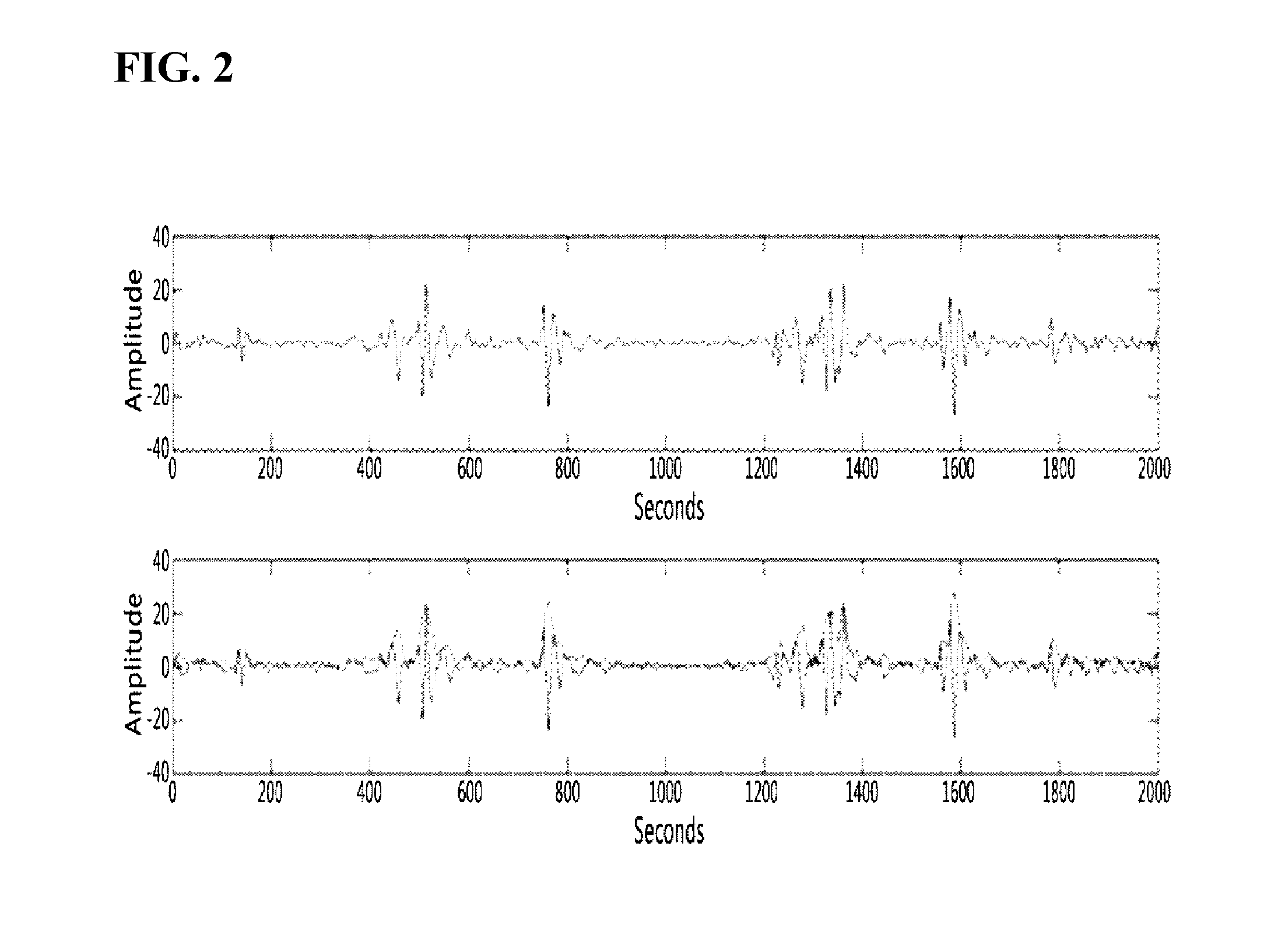Systems for monitoring the cardiovascular system using a heart lung sound
- Summary
- Abstract
- Description
- Claims
- Application Information
AI Technical Summary
Benefits of technology
Problems solved by technology
Method used
Image
Examples
verification experiment
[0136]5. Verification Experiment
verification experiment (
[01371)
[0138]Based on the data stored on the electronic medical record with a sampling frequency at 1000 Hz during operation, the systolic time interval (STI) was calculated. The pulse pressure (PP) was extracted from the invasive arterial pressure simultaneously recorded in the same record, and compared with the calculated systolic time interval (STI).
[0139]FIG. 7a is a graph shown by setting the systolic time interval (STI) as the Y-axis and the pulse pressure (PP) as the X-axis, and confirms that there is a correlation between them and that it shows a similar change pattern in real time.
[0140]FIG. 7b is a graph shown to confirm the change pattern. The result of the analysis confirmed that the correlation is high at a median value r=0.77 of Pearson correlation coefficient.
[0141]Thus, it was confirmed that the systolic time interval (STI) is an effective index showing the pulse pressure (PP). It was also proven that it is effective to provide the treatment information uing the syst...
PUM
 Login to View More
Login to View More Abstract
Description
Claims
Application Information
 Login to View More
Login to View More - R&D
- Intellectual Property
- Life Sciences
- Materials
- Tech Scout
- Unparalleled Data Quality
- Higher Quality Content
- 60% Fewer Hallucinations
Browse by: Latest US Patents, China's latest patents, Technical Efficacy Thesaurus, Application Domain, Technology Topic, Popular Technical Reports.
© 2025 PatSnap. All rights reserved.Legal|Privacy policy|Modern Slavery Act Transparency Statement|Sitemap|About US| Contact US: help@patsnap.com



